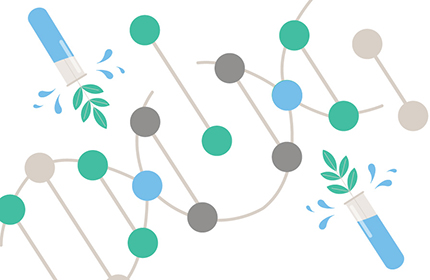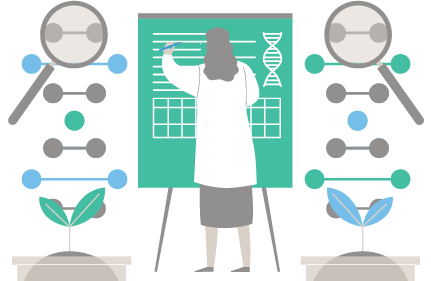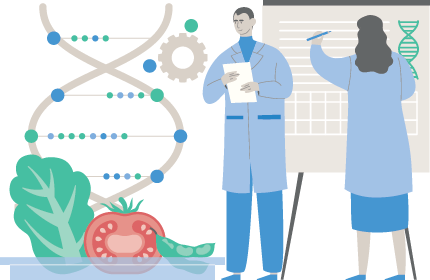Workshop 1: Gene Edited Plants – Context and Communication for Plant Breeding Innovation
-
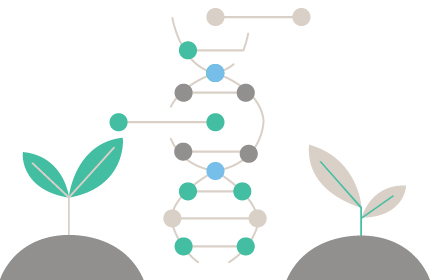
April 22, 2021
8:00 am - 12:00 pm(Virtual)
Seoul, South Korea
Gene editing refers to a family of precision plant breeding techniques being used to develop plants with beneficial traits ranging from resistance to abiotic and biotic stresses to nutritional enhancement. While there is no agreed upon international definition for these techniques, gene editing typically makes use of site-directed nucleases (SDNs) to introduce changes at a specific site in the genome. Depending upon the process, the resulting change could range from a point mutation to small sequence changes or potentially to the incorporation of entire genes. The regulation of gene edited plants is the subject of much discussion, particularly those that result from small sequence changes that are indistinguishable from plants produced through conventional mutagenesis methods.
In order to facilitate open and informed dialogue on science and policy, the Agriculture & Food Systems Institute is organizing a webinar series to convene scientists, risk assessors, regulators, and policymakers from academia, industry, and government in the Republic of Korea to discuss gene editing in the context of plant breeding and regulation. These discussions will potentially inform a science-based and transparent policy for the consideration of gene edited agricultural products. This webinar series on gene editing is supported by a grant from the USDA Foreign Agricultural Service, New Technologies and Production Methods Division. The webinars are by-invitation only events that will cater to researchers, risk assessors, regulators, scientists, and academics in the Republic of Korea. The series is intended to provide Korean stakeholders an opportunity to better understand the technology of gene editing and foster open dialogue between Korean government officials, scientists, and other stakeholders on issues related to new plant breeding technologies.
The introductory webinar featured presentations by six experts from around the world on different aspects of gene editing, followed by a Q&A session and set the stage for discussions on regulatory approaches and communication elements around gene editing. Subsequent webinars (dates to be determined) will address these topics in greater depth.
Live-translated into Korean, the introductory webinar took place on April 22, 2021 8:00 am – 12:00 noon KST.
Agenda
8:00 am
Welcome and Introduction
Dr. Andrew Roberts
Chief Executive Officer
Agriculture & Food Systems Institute, USA
8:05 am
Plant Breeding – History, Safety, and Regulation
Dr. Wayne Parrot
University of Georgia, USA
8:35 am
Plant Breeding – Perspective from Korea on Regulation and Variety Registration
Dr. Yong Pyo Lim
Department of Horticulture, Chungnam National University, Korea
9:05 am
Innovative Breeding Technologies – Science of Gene Editing
Dr. Allen Van Deynze
Director
Research Seed Biotechnology Center, College of Agricultural and Environmental Sciences, UC Davis, USA
9:35 am
Innovative Breeding Technologies – Product Development
Dr. Chee Hark Harn
Director
Seed R&BD Headquarters, ToolGen Inc., Korea
10:05 am
Regulatory Landscape for Organisms Derived from Genome Editing
Dr. Peter Thygessen
Principal Regulatory Scientist
Office of the Gene Technology Regulator, Australia
10:40 am
Engaging Public Researchers in Policy and Regulatory Dialogue
Dr. Hans Bergmans (Retired)
Netherlands Institute for Public Health and the Environment
11:05 am
Open Forum, Q&A, and Closing Remarks
Dr. Yong-Sam Kim
Associate Director
Genome Editing Research Center, Korea Research Institute of Bioscience and Biotechnology
11:55 am
Vote of Thanks
Ms. Maria Pool
Senior Director
New Technologies and Production Methods Division, USDA Foreign Agricultural Services
Speaker Bios
Dr. Wayne Parrot
University of Georgia
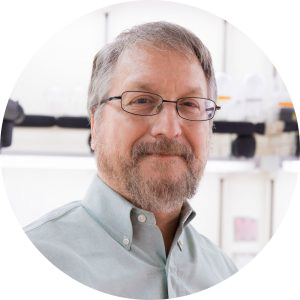 Dr. Wayne Parrott received a degree in agronomy from the University of Kentucky, and M.S. and Ph.D. degrees in Plant Breeding and Plant Genetics from the University of Wisconsin-Madison. He joined the faculty at the University of Georgia in 1988. Since then, he has published ~ 115 journal articles in refereed publications and 14 book chapters based on his research. He is actively engaged in training graduate students and postdoctoral fellows and teaches graduate-level courses in genetics and undergraduate courses in agroecology and sustainable agriculture.
Dr. Wayne Parrott received a degree in agronomy from the University of Kentucky, and M.S. and Ph.D. degrees in Plant Breeding and Plant Genetics from the University of Wisconsin-Madison. He joined the faculty at the University of Georgia in 1988. Since then, he has published ~ 115 journal articles in refereed publications and 14 book chapters based on his research. He is actively engaged in training graduate students and postdoctoral fellows and teaches graduate-level courses in genetics and undergraduate courses in agroecology and sustainable agriculture.
He is a past director of the University of Georgia’s Plant Center and served as a director for the NSF plant genome program in Washington and is currently the secretary for the American Society of Plant Biologists. He has served terms on the editorial boards of biotechnology journals. He is a past chair of the biotechnology section of the Crop Science Society of America and of the plant section of the Society for In Vitro Biology. He is a fellow of both societies, as well as of AAAS. He has traveled extensively throughout Latin America and other countries and advised legislators and regulators in the various countries on the requisites for a functional regulatory system that ensures the safety of modified products in agriculture.
Dr. Yong Pyo Lim
Department of Horticulture, Chungnam National University, Korea
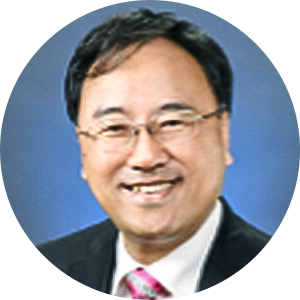 Dr. Yong Pyo Lim got his Ph.D. at University of Rhode Island, USA and later joined Yale University as a postdoc. In 1992, he was offered a professorship at the Department of Horticulture, Chungnam National University, where he started to research the genomics of Chinese cabbage, coordinating genetics and breeding studies, as it is the second most valuable crop with a long agricultural history in Korea. With minimal biotechnology facilities, he developed world class resources for the genome sequencing project, such as BAC library, standard genetic mapping, etc. of Chinese cabbage.
Dr. Yong Pyo Lim got his Ph.D. at University of Rhode Island, USA and later joined Yale University as a postdoc. In 1992, he was offered a professorship at the Department of Horticulture, Chungnam National University, where he started to research the genomics of Chinese cabbage, coordinating genetics and breeding studies, as it is the second most valuable crop with a long agricultural history in Korea. With minimal biotechnology facilities, he developed world class resources for the genome sequencing project, such as BAC library, standard genetic mapping, etc. of Chinese cabbage.
Dr. Lim has continued to research Chinese cabbage with modern genomic technologies. He started the Multinational Brassica Genomics Project (MBGP) in 2003 with collaborating scientists from Australia, Canada, China, UK, and USA. He chaired the MBGP for several consecutive years to achieve the whole genome sequencing. In 2011, draft genome of Brassica rapa was published in Nature Genetics with the help of Next Generation Sequencing technologies and was introduced as a model genome sequence for the genus Brassica. He has published over 290 peer reviewed research articles and authored 14 books about Brassica genetics and genomics. Another one of his achievements is the collection of over 6,000 Brassica germplasms from around the world, which is supposed to be one of the largest germplasm collections of Brassica. He has supported germplasms with renowned scientists and companies around the world for conducting their research to improve Brassica varities. These efforts paved way for him to serve as the director of Golden Seed Project (GSP) Vegetable Seed Center to boost the vegetable seed industry in Korea.
Dr. Allen Van Deynze
Director
Research Seed Biotechnology Center, College of Agricultural and Environmental Sciences, UC Davis, USA
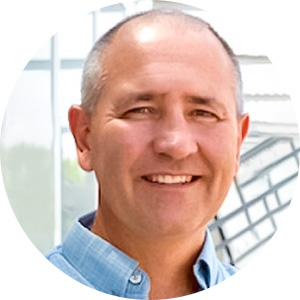 Dr. Allen Van Deynze is the Director of the Seed Biotechnology Center and Associate Director of the Plant Breeding Center at University of California, Davis. He has a Ph.D. in plant breeding from University of Guelph, Canada. As part of the SBC’s mission to serve as a liaison between public institutions and seed industry, Allen is responsible for developing, coordinating, and conducting research and generating and disseminating scientific and informational content for the Seed Biotechnology Center’s and Plant Breeding Center’s educational and outreach programs. His research focuses on developing and integrating genomics into plant breeding of California and African crops. He has programs on breeding for biotic and abiotic stress and quality in pepper and spinach, and development and application of genomics in crops. He co-developed and is organizer/instructor for the Plant Breeding Academysm and professional classes in plant breeding and genomics. He is the past chair of the US Plant Breeding Coordinating Committee and has been directly involved in International and National policy including US Regulations for Biotechnology and the Cartagena Protocol on Biosafety. He is an instructor for the African Plant Breeding Academy and Scientific Director for the African Orphan Crops Consortium, and he was an advisor to the founding of the African Plant Breeders Association.
Dr. Allen Van Deynze is the Director of the Seed Biotechnology Center and Associate Director of the Plant Breeding Center at University of California, Davis. He has a Ph.D. in plant breeding from University of Guelph, Canada. As part of the SBC’s mission to serve as a liaison between public institutions and seed industry, Allen is responsible for developing, coordinating, and conducting research and generating and disseminating scientific and informational content for the Seed Biotechnology Center’s and Plant Breeding Center’s educational and outreach programs. His research focuses on developing and integrating genomics into plant breeding of California and African crops. He has programs on breeding for biotic and abiotic stress and quality in pepper and spinach, and development and application of genomics in crops. He co-developed and is organizer/instructor for the Plant Breeding Academysm and professional classes in plant breeding and genomics. He is the past chair of the US Plant Breeding Coordinating Committee and has been directly involved in International and National policy including US Regulations for Biotechnology and the Cartagena Protocol on Biosafety. He is an instructor for the African Plant Breeding Academy and Scientific Director for the African Orphan Crops Consortium, and he was an advisor to the founding of the African Plant Breeders Association.
Dr. Chee Hark Harn
Director
Seed R&BD Headquarters, ToolGen Inc., Korea
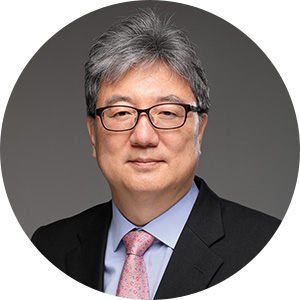 Dr. Chee Hark Harn is Director of the Seed R&BD Headquarter at ToolGen Inc. Since 2018, ToolGen Inc. has been developing new genetic resources and seeds using CRISPR/Cas9 technology. Dr. Harn majored in Biology at Chung-Ang University, Korea, and he moved to the USA for his M.S. (OSU, Oregon) and Ph.D. (Rutgers Univ., New Jersey). As a graduate student, he built up his science background in Genetics, Biochemistry, and Plant Molecular Biology. For his postdoc training, he worked on Plant Biotechnology, focusing on starch and sucrose biosynthesis’s metabolic engineering. He went back to Korea in 1996 and worked at the Korea Research Institute of Bioscience and Biotechnology (KRIBB) as a research scientist for three years. He then moved to Nongwoo Bio Co., a seed company, serving as a project leader, a Biotechnology Institute director, and a director of the R&D Headquarter.
Dr. Chee Hark Harn is Director of the Seed R&BD Headquarter at ToolGen Inc. Since 2018, ToolGen Inc. has been developing new genetic resources and seeds using CRISPR/Cas9 technology. Dr. Harn majored in Biology at Chung-Ang University, Korea, and he moved to the USA for his M.S. (OSU, Oregon) and Ph.D. (Rutgers Univ., New Jersey). As a graduate student, he built up his science background in Genetics, Biochemistry, and Plant Molecular Biology. For his postdoc training, he worked on Plant Biotechnology, focusing on starch and sucrose biosynthesis’s metabolic engineering. He went back to Korea in 1996 and worked at the Korea Research Institute of Bioscience and Biotechnology (KRIBB) as a research scientist for three years. He then moved to Nongwoo Bio Co., a seed company, serving as a project leader, a Biotechnology Institute director, and a director of the R&D Headquarter.
Dr. Harn has served in several Universities, as an Adjunct Professor, and Academic Societies, as a president (Korean Society of Plant Biotechnology and Korean Society for Horticultural Science), during the last 20 years. He has also served as a committee member of many government-organized meetings, including the National Science & Technology Council, Korea.
Dr. Peter Thygessen
Principal Regulatory Scientist
Office of the Gene Technology Regulator, Australia
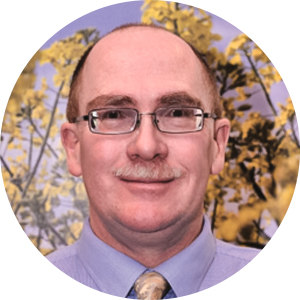 Dr. Peter Thygesen works in Australia’s Office of the Gene Technology Regulator (OGTR) in the role of Principal Regulatory Scientist. OGTR regulates work with genetically modified organisms (GMOs), including for environmental releases. In his current role, he provides support to the office, especially in relation to risk analysis, and he is interested in the implications of new technologies and other biological assessment frameworks for GMO risk analysis. His early work at OGTR included evaluating applications for environmental release of GM plants, and he also has experience with legal and regulatory policy issues for GMOs. He has been active in OGTR’s international engagement, in particular in the OECD Working Party on the Harmonisation of Regulatory Oversight in Biotechnology (WPHROB). He took on the role of Chair of WPHROB in 2021. His academic background is in microbial and plant molecular biology at the Australian National University (B.Sc. Hons., Ph.D.) and CSIRO.
Dr. Peter Thygesen works in Australia’s Office of the Gene Technology Regulator (OGTR) in the role of Principal Regulatory Scientist. OGTR regulates work with genetically modified organisms (GMOs), including for environmental releases. In his current role, he provides support to the office, especially in relation to risk analysis, and he is interested in the implications of new technologies and other biological assessment frameworks for GMO risk analysis. His early work at OGTR included evaluating applications for environmental release of GM plants, and he also has experience with legal and regulatory policy issues for GMOs. He has been active in OGTR’s international engagement, in particular in the OECD Working Party on the Harmonisation of Regulatory Oversight in Biotechnology (WPHROB). He took on the role of Chair of WPHROB in 2021. His academic background is in microbial and plant molecular biology at the Australian National University (B.Sc. Hons., Ph.D.) and CSIRO.
Dr. Hans Bergmans (Retired)
Netherlands Institute for Public Health and the Environment (Retired)
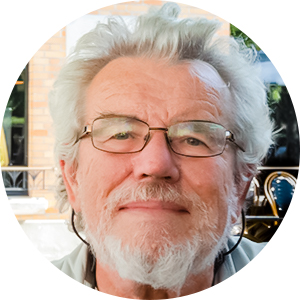 Dr. Hans Bergmans was trained as a molecular biologist and has a Ph.D. in bacterial genetics (1976). He was active as an associate professor in molecular cell biology at Utrecht University until 1990, when he became Secretary of the Advisory Commission on Genetic Modification in the Netherlands. In 1999, he became Senior Risk Assessor at the GMO Office of the National Institute for Public Health and the Environment, until his retirement in 2013. Since 1990, he has been active as a scientific advisor in drafting GMO regulations in the Netherlands. He has participated in the OECD Working Group on the Harmonization of Regulatory Oversight in Biotechnology and was Chair of its Subcommittee on Micro-organisms. He was a delegate to the COP-MOP meetings of the Biosafety Protocol and was a member of its Ad Hoc Technical Expert Group on Risk Assessment and Risk Management. He has also been active in the drafting of the GMO amendment for the Aarhus Convention on Public Participation in Environmental Matters. Since his retirement, he has (co-)authored several reports and papers on GMO risk assessment and on the EU GMO Regulations. He is a member of PRRI, the Public Research and Regulation Initiative.
Dr. Hans Bergmans was trained as a molecular biologist and has a Ph.D. in bacterial genetics (1976). He was active as an associate professor in molecular cell biology at Utrecht University until 1990, when he became Secretary of the Advisory Commission on Genetic Modification in the Netherlands. In 1999, he became Senior Risk Assessor at the GMO Office of the National Institute for Public Health and the Environment, until his retirement in 2013. Since 1990, he has been active as a scientific advisor in drafting GMO regulations in the Netherlands. He has participated in the OECD Working Group on the Harmonization of Regulatory Oversight in Biotechnology and was Chair of its Subcommittee on Micro-organisms. He was a delegate to the COP-MOP meetings of the Biosafety Protocol and was a member of its Ad Hoc Technical Expert Group on Risk Assessment and Risk Management. He has also been active in the drafting of the GMO amendment for the Aarhus Convention on Public Participation in Environmental Matters. Since his retirement, he has (co-)authored several reports and papers on GMO risk assessment and on the EU GMO Regulations. He is a member of PRRI, the Public Research and Regulation Initiative.
Dr. Yong-Sam Kim
Associate Director
Genome Editing Research Center, Korea Research Institute of Bioscience and Biotechnology
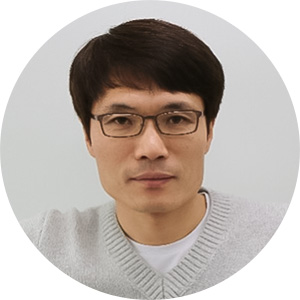 Dr. Yong-Sam Kim is a principal investigator working for the Korea Research Institute of Bioscience and Biotechnology (KRIBB). He is also the director of Genome Editing Research Center in KRIBB. He holds B.A., M.S., and Ph.D. degrees from the Seoul National University, majoring in Agricultural Chemistry. He earned a Ph.D. degree with a thesis on an auxin binding protein. He was a research associate for Fred Hutchinson Cancer Research Center in 2011. Currently, his main research interests include the development of a novel genome editing technology and improvement of CRISPR technologies. His major achievement is the development of highly efficient CRISPR-Cpf1 and CRISPR-Cas12f systems through the engineering of CRISPR RNA. The engineered CRISPR-Cpf1 shows genome editing efficiency that surpasses that of CRISPR-Cas9 system. The highly efficient CRISPR systems are expected to harness genome editing-based gene therapy and the development of various plant varieties. He is also seeking to apply genome editing tools to facilitate the development of cancer-specific biomarkers by genome-engineering model animals. He is the CEO of GenKOre in Korea.
Dr. Yong-Sam Kim is a principal investigator working for the Korea Research Institute of Bioscience and Biotechnology (KRIBB). He is also the director of Genome Editing Research Center in KRIBB. He holds B.A., M.S., and Ph.D. degrees from the Seoul National University, majoring in Agricultural Chemistry. He earned a Ph.D. degree with a thesis on an auxin binding protein. He was a research associate for Fred Hutchinson Cancer Research Center in 2011. Currently, his main research interests include the development of a novel genome editing technology and improvement of CRISPR technologies. His major achievement is the development of highly efficient CRISPR-Cpf1 and CRISPR-Cas12f systems through the engineering of CRISPR RNA. The engineered CRISPR-Cpf1 shows genome editing efficiency that surpasses that of CRISPR-Cas9 system. The highly efficient CRISPR systems are expected to harness genome editing-based gene therapy and the development of various plant varieties. He is also seeking to apply genome editing tools to facilitate the development of cancer-specific biomarkers by genome-engineering model animals. He is the CEO of GenKOre in Korea.

